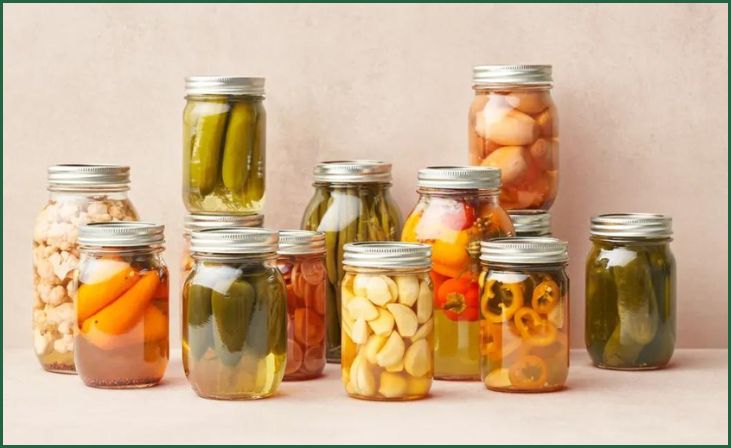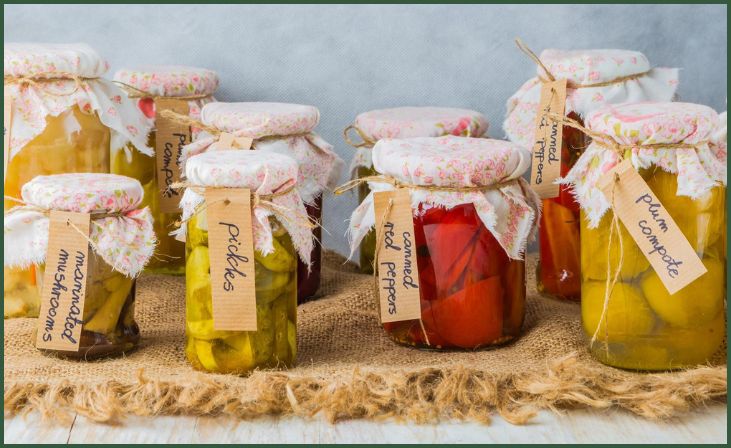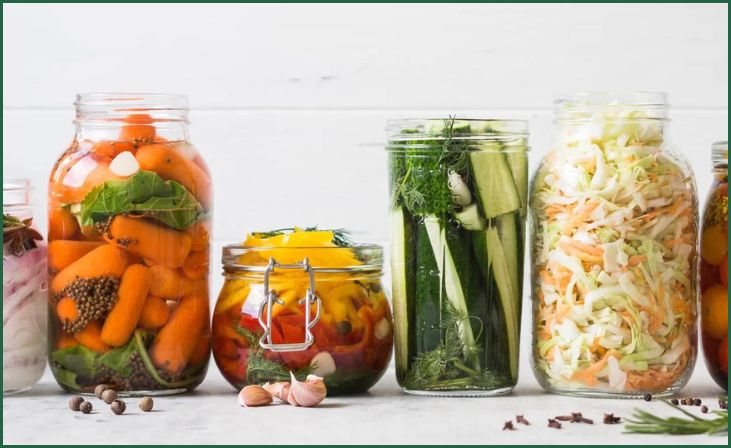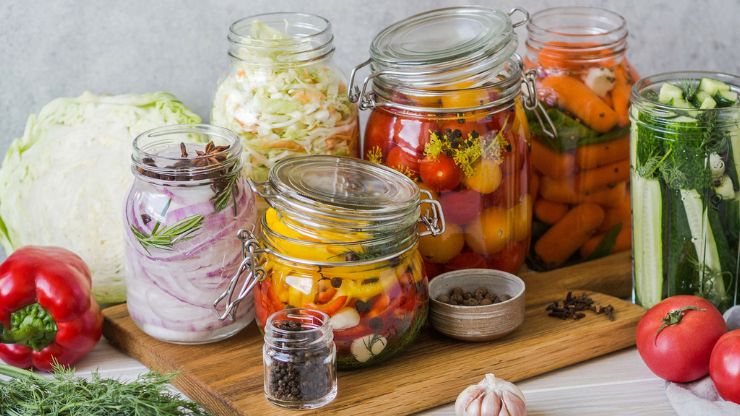How To Save Money With Fermented Food Scraps – Welcome to the realm of affordable and eco-conscious living! In this comprehensive guide, we’ll delve into the captivating world of fermenting food scraps. Our journey is not only about curbing waste but also about unlocking significant savings. Let’s immerse ourselves in the art of fermentation and unveil the secrets to transforming kitchen scraps into delightful, budget-friendly treasures.
Embracing a lifestyle that is both economical and sustainable starts right here. By exploring the possibilities of fermenting food scraps, you’re not just adopting a trendy culinary technique; you’re taking a step towards a more environmentally friendly and cost-effective way of living.
Now, let’s embark on this journey together, where we’ll not only learn the ins and outs of fermentation but also discover how this ancient practice can be a game-changer in your quest for both financial prudence and ecological responsibility.
Table of Contents
ToggleThe Art of Fermentation: Understanding the Basics

Fermentation unfolds as a natural phenomenon orchestrated by microorganisms such as bacteria, yeast, or mold, intricately breaking down organic compounds. In the realm of food scraps, this enchanting process involves the metamorphosis of leftover fruits, vegetables, and more into flavorful and preserved treasures. As we delve into this ancient technique, not only do we elevate the taste of our food, but we also extend its shelf life, mastering the art that our ancestors revered.
Also Read:- Lacto-Fermented Blueberry Coffee Cake
Benefits of Fermented Food Scraps: Reducing Food Waste

One of the paramount advantages of venturing into the world of fermenting food scraps is the substantial reduction of kitchen waste. Instead of consigning carrot peels or apple cores to the bin, envision transforming them into pickles, sauces, or even probiotic-rich snacks. This dual benefit not only translates to saving money but also contributes significantly to fostering a more sustainable and eco-friendly lifestyle.
Financial Savings through Fermentation
Maximizing Cost Efficiency
The journey of fermenting your own food at home unfolds as a pathway to substantial cost savings. Store-bought fermented products may strain your budget, but armed with a touch of creativity, you can craft your own for a fraction of the price. Picture the satisfaction of relishing homemade sauerkraut or kimchi without denting your wallet.
Choosing the Right Scraps for Fermentation: Maximizing Cost Efficiency
To extract the utmost value from your fermentation endeavors, selecting the right scraps is paramount. Opt for items that often meet the fate of being discarded, yet harbor a nutritional punch. Broccoli stems, citrus peels, and herb stems stand out as exemplary choices, ensuring not only monetary savings but also the extraction of optimal nutrients from your food.
Don't just scroll, subscribe!
BuzzTrail's unique web-stories are the cure for boredom you've been waiting for.
DIY Fermentation Techniques: Easy Methods to Start Fermenting at Home
Creative Ideas for Cost-Effective Fermentation
Embarking on your fermentation journey need not be an intricate affair. Armed with basic kitchen equipment and a sprinkle of creativity, you can effortlessly metamorphose mundane scraps into delectable treasures. From crafting fruit scrap vinegar to experimenting with fermented hot sauce, the panorama of possibilities unfolds limitlessly. Dive into these easy and budget-friendly techniques, enriching not just your culinary skills but also your appreciation for the economical magic of fermentation.
How To Save Money With Fermented Food Scraps?

Incorporating Fermented Foods in Your Diet: Making the Most of Nutrient-Rich Options
Fermented foods not only serve as a wallet-friendly alternative but also bring a myriad of health benefits to the table. This transformative process goes beyond mere savings, enhancing the bioavailability of essential nutrients, thus facilitating their absorption by your body. Elevate your culinary experience by seamlessly integrating these nutrient-rich options into your daily diet. Yogurt, kefir, and pickled vegetables stand out as delicious choices that not only contribute to a budget-conscious lifestyle but also promote overall well-being.
Sustainability and Environmental Impact: Contributing to a Greener Planet
Beyond the immediate financial gains, the act of fermenting food scraps aligns harmoniously with a sustainable lifestyle. As you actively reduce food waste through fermentation, you become a catalyst for a greener planet. The positive environmental impact extends to fewer scraps accumulating in landfills, ultimately lessening the strain on our ecosystems. Moreover, the energy saved by repurposing food scraps instead of producing new items contributes to a more sustainable and eco-friendly global food system. So, as you embark on your journey to save money through fermentation, remember that you’re not just benefiting your wallet but also playing a pivotal role in preserving the health of our Earth.
Also Read:- Fermented Celeriac Crisps
Conclusion
Embarking on the journey of saving money with fermented food scraps transcends mere thriftiness; it represents a holistic commitment to sustainable living. Beyond the financial considerations, this endeavor embodies a conscientious approach to our ecological footprint. As you engage in the art of fermentation, reducing waste becomes an integral part of your lifestyle, echoing the principles of environmental responsibility.
Embracing creativity in transforming kitchen scraps into culinary delights not only adds a flavorful dimension to your meals but also signifies a departure from the throwaway culture. The nutritional benefits inherent in fermented foods further amplify the significance of this journey, contributing not just to personal well-being but also to the broader health of our planet.
With every jar of pickles or batch of sauerkraut, you’re not just saving dollars; you’re actively participating in a collective effort toward a healthier, more sustainable world. So, start fermenting, start saving, and relish the rewards of a budget-friendly and eco-conscious lifestyle that extends its positive impact far beyond your kitchen.
Frequently Asked Questions
Is fermenting food scraps safe?
Is fermenting food scraps safe?
Fermentation is a natural and safe process when done correctly. Ensure proper hygiene, use clean utensils, and follow reliable recipes to enjoy safe fermented foods.
Can I ferment any food scraps?
Can I ferment any food scraps?
While many scraps can be fermented, it’s essential to choose items with high water content and avoid heavily processed or contaminated scraps.

